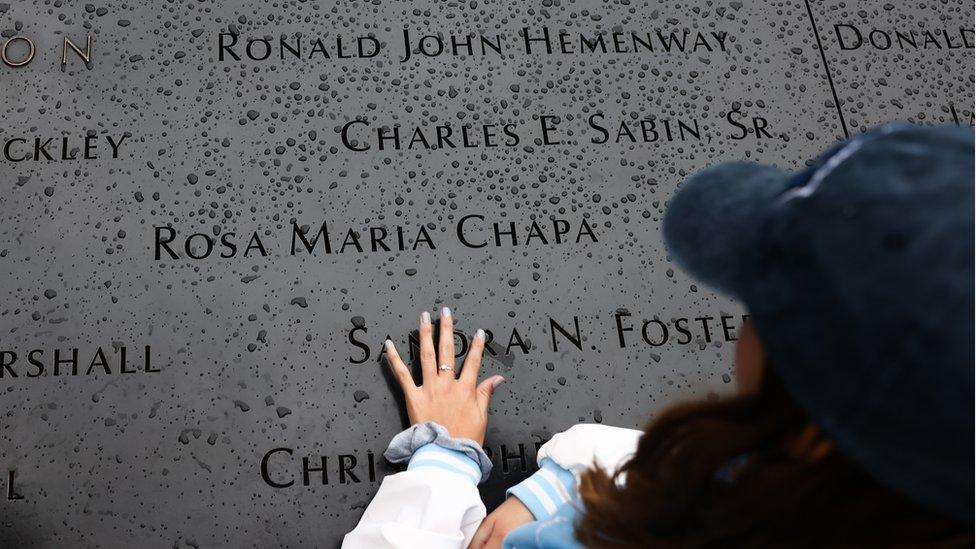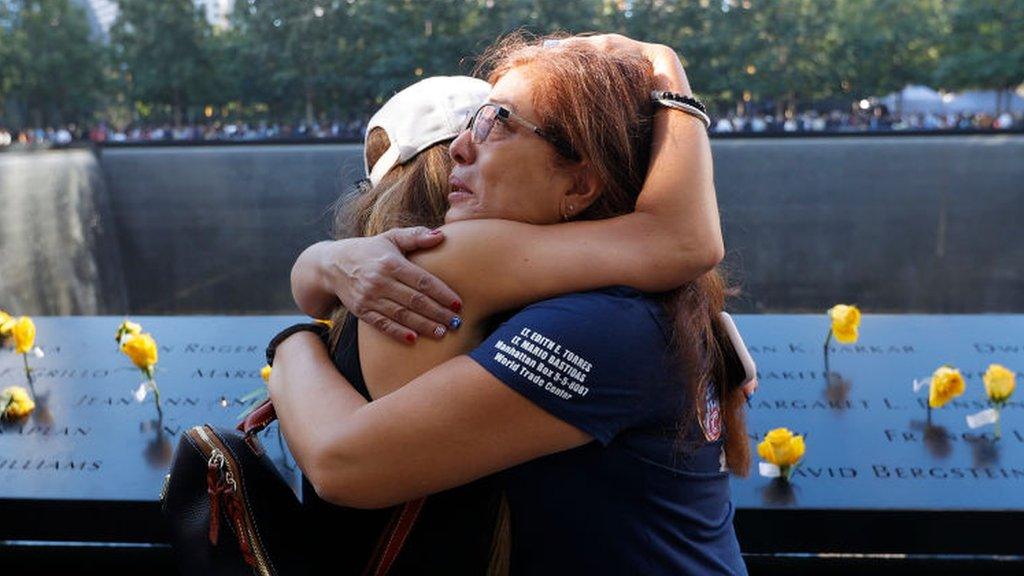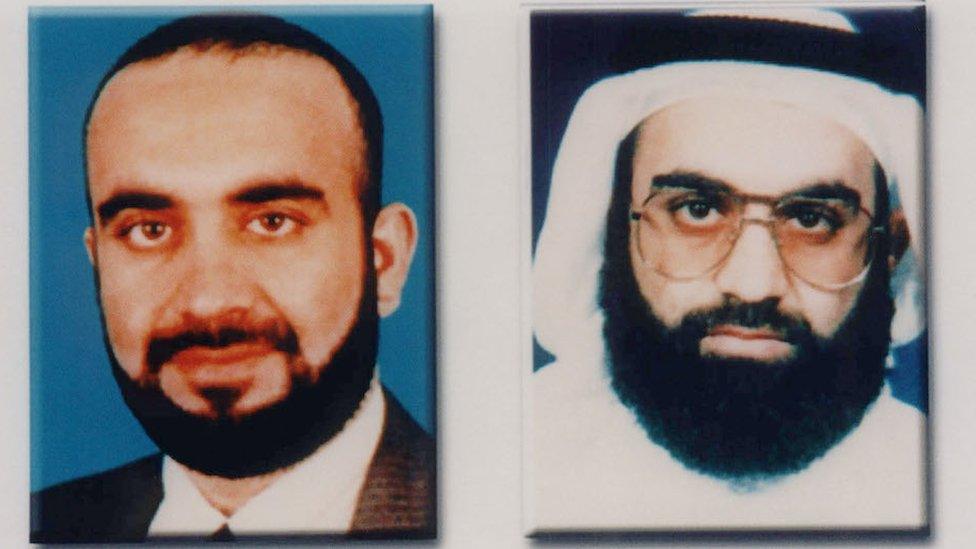Judge blocks 9/11 victims' claim to Afghan assets
- Published

A person visits the 9/11 Memorial in New York City
Victims of the 9/11 attacks are not entitled to seize $3.5bn (£2.9bn) in assets belonging to Afghanistan's central bank, a US judge has ruled.
Lawyers pursuing the compensation argued these funds could satisfy court judgments they had obtained against Afghanistan's ruling Taliban.
At the time of the attacks in 2001, the Taliban had allowed al-Qaeda militants to operate from Afghanistan.
The suicide plane attacks on America claimed 2,977 lives.
Judge George Daniels said he was "constitutionally restrained" from approving access to the funds, which are frozen in the US, as this would amount to a ruling that the Taliban were Afghanistan's legitimate government.
He noted that the Biden administration did not recognise the Taliban, which meant US courts did not have the power to do so either.
"The judgment creditors are entitled to collect on their default judgments and be made whole for the worst terrorist attack in our nation's history, but they cannot do so with the funds of the central bank of Afghanistan," Judge Daniels wrote in his 30-page judgement.
"The Taliban, not the former Islamic Republic of Afghanistan or the Afghan people, must pay for the Taliban's liability in the 9/11 attacks," he added.
The Taliban were removed from power by a US-led military coalition in 2001, but retook control of Afghanistan in 2021 after Western forces withdrew from the country.
Al-Qaeda, an Islamist extremist network, planned the 11 September attacks from Afghanistan before planes were flown into the World Trade Center in New York and the Pentagon in northern Virginia, with a fourth jet crashing into a field in Pennsylvania.
The judge's ruling is a defeat for those who had claimed some of the $7bn of Afghanistan's central bank funds frozen at the Federal Reserve Bank in New York.
"This decision deprives over 10,000 members of the 9/11 community of their right to collect compensation from the Taliban," said Lee Wolosky, a lawyer who argued for victims' compensation. "We believe it is wrongly decided and will appeal."
- Published12 September 2021

- Published6 September 2021
